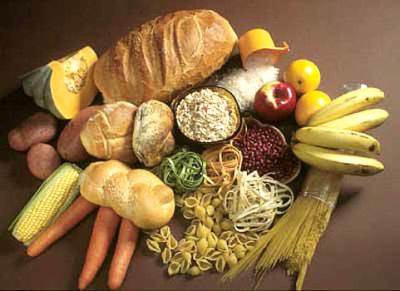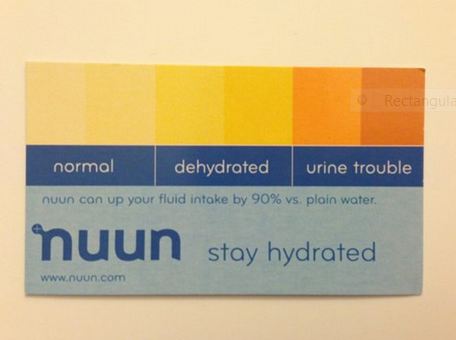I’ve put in (most) of the mileage, knocked out the speed workouts and juggled my already-crazy life around marathon training; why does it still seem so hard to taper? I’m not talking about the kind of “hard” that other runners complain about, those A-types who miss the daily pavement pounding and the quantitative atta-boys doled out by stopwatches and training logs. Personally, I sort of like the fewer and more leisurely-run miles gifted to me during the tapering period before a marathon. Ahhhh.
But, I start to freak out about food; perhaps “obsess” is a better description. Normally, I’m really not much of a diet worry-wart. I typically eat with my health in mind, but don’t have a problem splurging when the opportunity presents. But, between the fear of bonking (again), the panic of finding an on-course port-a-let due to GI distress (again), or the dread gaining enough weight in one week that I can’t fit into my cute racing shorts (hasn’t happened yet, but who knows), all I can think about this week is what I should be eating and drinking. Although I’ve run plenty of marathons over the last 20 years and should know every trick of the trade (but always forget), I pulled together this list of tips to remind myself how to be as prepared as possible with my nutrition for the week leading up the marathon.
Match calorie input with energy output. Since most training plans have runners reducing mileage 30-50 percent during the last two weeks, calorie intake should be tweaked down as well to avoid real weight gain (however you will temporarily gain some water weight as I mention below). For me, this is only about 250 fewer calories a day in the last week, and is as easy as cutting out my bedtime snack. However, remember that the taper period is not the time to restrict calories with weight-loss in mind; you need to rebuild muscle fibers and top off your glycogen tanks. So, if your body is legitimately saying it’s hungry, eat!
Don’t be a slave to the scale. If you are eating a nutritiously-sound diet and have cut out most of your now-unnecessary refueling snacks, you are not going to pile on the pounds. That being said, you may actually gain two to four pounds of water weight during the tapering process just by “carbo-loading.” For ever one ounce of glucose put into reserves, your body stores another three ounces of water. So a diet a little heavy in carbs the week before, is going to make you retain water – a good thing to prevent dehydration and bonking on the course.
Make clean carb choices. An unhealthy, high-carb diet includes empty calories found in sugary, processed foods such as candy, cookies and pastries. The simple carbs found in these snack food spike blood sugar in a crash-and-burn manner unlike the longer-lasting energy found in complex carbohydrates (foods such as whole grains, fruits and vegetables, and low-fat dairy or soy products). Plus, often too many of the simple carbs are also paired with high-calorie fat, sabotaging your ability to efficiently “carbo-load” while still getting enough protein.
Eat your meat (or alternative protein). Just because the food focus during taper week is on complex-carbohydrates and increasing glycogen stores, the importance of lean protein should not be overlooked. Protein has essential vitamins, minerals, and amino acids that aid in the building and recovery of muscle tissue. Also, many protein choices, such as lean beef, are loaded B vitamins which help efficiently convert those carbohydrates I’ve been talking about into the fuel needed to make it through the marathon. Don’t know how much protein to eat? The average adult requires 0 .8 grams of protein per kilogram (2.2 lbs) of body weight per day, equating to about 55 grams for a 150-pound person. Runners and other endurance athletes should aim for approximately 1.2 to 1.4 grams per kilogram (2.2 lbs), or 82 to 95 grams for a 150-pound person.
Time to hydrate. Taking in enough fluids before the marathon is vital and will help you keep from becoming dehydrated on the course (although, you’ll still have to take in fluid during the actual race). Don’t let cold or overcast weather trick you into thinking you don’t need to drink; I once became severely dehydrated in 35-degrees and pouring down rain. Water is a great choice for hydration, or the sports drink of your choice. This is not the time to experiment with your beverages, stick to the tried-and-true sports drink used during training runs. Experts warn about over-hydrating (hyponatremia) which can throw off your electrolyte balance and put your life in jeopardy; listen to your body and don’t force water, if you’re not thirsty. To get a benchmark on your level of hydration, check out this “pee chart” below which shows you the optimal range of urination colors.
Forty-eight hours and counting. Two days out from the marathon, I suggest continuing the complex-carb and protein diet, but reduce the amount of fiber being consumed. You don’t want stuff moving through you too fast, if you know what I mean. The day before the marathon, consider eating your largest meal at lunch, not dinner. This gives you more time to digest the food, leaving you nourished but not weighed down in the morning. Continue to hydrate, but avoid alcoholic beverages and too much caffeine which could both leave you dehydrated. Also, if you are a “sweater” or the weather is warm, drink your preferred electrolyte beverage and/or salt your food more than usual.




Great tips! When I’m ready to tackle 26.2 again, I’ll be referring back to this 🙂 Best wishes for an amazing race!
Pingback: Shareworthy Snippets: Taper Madness
Pingback: Nutritious Apricot + Almond Snack Ideas! | thefitfork.com